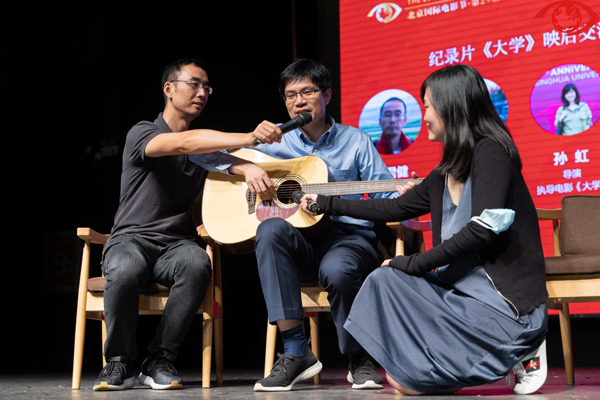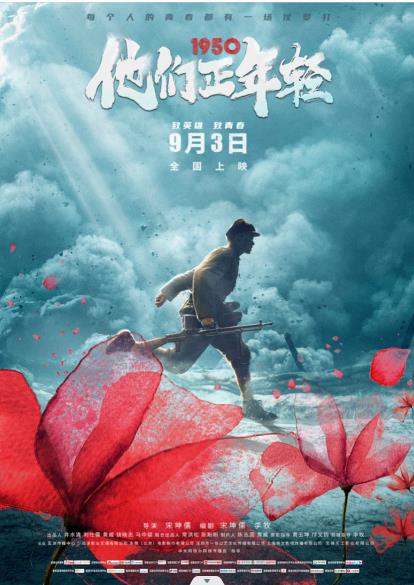On August 24th, co-sponsored by Beijing Normal University, Beijing Dongcheng District Committee of the Communist Party of China, and Beijing Dongcheng District People’s Government, organized by the Beijing International Film Festival 29th College Student Film Festival Organizing Committee and Beijing Normal University School of Art and Media The Beijing International Film Festival, College Student Film Festival Records, Animation, and Opera special unit screenings and cultural salon activities were officially opened at the 77 Cultural and Creative Park in Dongcheng District, Beijing. For the first time, the “Documentary, Animation and Opera Special Unit” of this year’s College Student Film Festival has added offline screenings and round-table dialogues. While showing excellent films, experts, scholars and industry guests are invited to share the excellent Chinese opera, animation and Chinese opera in recent years. Documentary films carry out new discussions and new excavations, and strive to provide new ideas and new perspectives for the development of Chinese film art, industry and education. This film culture salon will be based on the characteristics of Dongcheng District, Beijing, respond to the cultural slogan of “Dongcheng drama, drama ecology” in Dongcheng District, create an art platform for young people, let film and drama jointly build regional business cards, and jointly promote the international spread of Chinese culture .
On August 25, the Special Documentary Screening and Cultural Salon of the College Student Film Festival was successfully held. In recent years, documentary films have made innovations in dramatic aesthetics, technical aesthetics, and documentary aesthetics. While adapting to young audiences and market patterns, and breaking through audio-visual boundaries, documentaries also look back on history, record society, and gain insight into life.
On the morning of the same day, “1950 They Are Young” opened the documentary unit screening. “1950 They Are Young” focuses on the ordinary young people who participated in the War of Resistance Against US Aggression and Aid Korea 71 years ago from a new perspective. It is told by real veterans who participated in the war in different branches of the military and in different periods, and presents their once passionate youth and dreams in simple and subtle words. It also restores the most real battlefield, bringing shock and resonance to the hearts of contemporary young people.

In the afternoon, the Beijing premiere and academic seminar of the documentary film “Chasing the Light” was held at the event site. Through the perspective of Lu Yan, the first Chinese Academy Award lifetime judge, “Chasing Light” tells the legendary experiences of Anna May Huang, Li Minwei, Cai Chusheng, Bruce Lee and others, and presents the outstanding contributions made by the Chinese to the development of world cinema. These historical Guangdong superstars expressed their patriotic feelings and national responsibilities in different historical periods and different social backgrounds in the form of movies, and their lives were endlessly pursued. The spiritual power that shines in them is not only the spirit of the Chinese people, but also the common value pursuit of all mankind. “Chasing the Light” will be released nationwide on September 9.
After the screening, Zhang Tongdao, the chief director of “Chasing the Light” and professor of the School of Art and Media of Beijing Normal University, the reproduction director Sun Chenglin, the photographer Liu Pengfei, the assistant directors Fan Qipeng and Zhao Qian, and the assistant director Xing Fei attended the main creator meeting, shot in the United States. Executive director Feng Chen greeted the audience with a video in Los Angeles. These main creators are all from the film and television team of Beijing Normal University. Professor Zhang Tongdao said that they used to be my students, but now they are my colleagues, friends and partners.
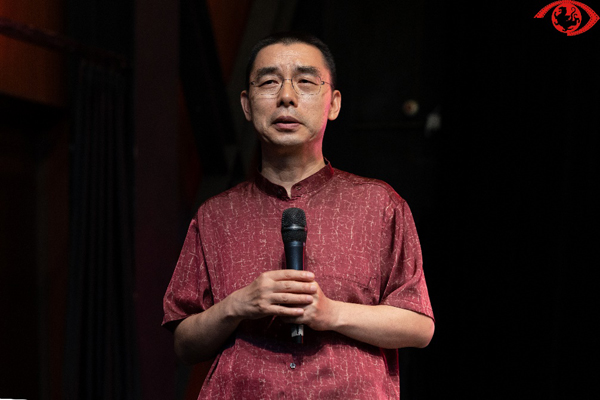
(Zhang Tongdao, chief director of “Chasing the Light”, professor of the School of Art and Media, Beijing Normal University, director of the Documentary Center)
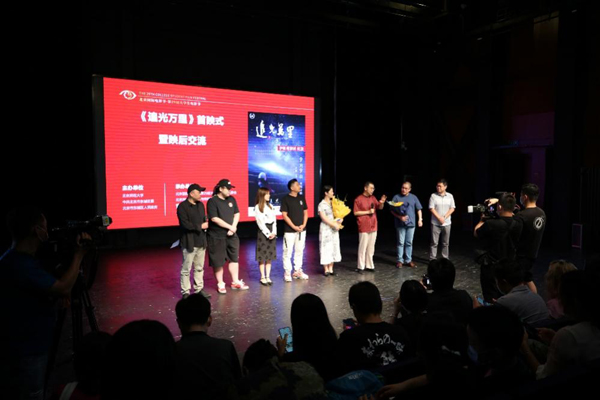
Subsequently, Zhou Guiyi, the host of “Sister Yi Watching Movies”, hosted the post-screening exchange meeting of “Chasing the Light”. At the meeting, director Zhang Tongdao said that “Chasing the Light” takes well-known Cantonese filmmakers as the starting point, and pays tribute to the pioneers who have made outstanding contributions to the history of Chinese films for a century. Teacher Lu Yan is the soul of “Chasing the Light”. The international superstar does not pay for the film, and she still works hard when she is over ninety years old. She even goes to remote villages to find the footsteps of Anna May Huang. She is a movie myth in her own right. Reproduction director Sun Chenglin said that the film finally presented more than 20 reappearances. It also took into account the interest in expressing key historical nodes and the hearts of the characters. These reappearance scenes complemented the insufficiency of interviews and materials, allowing the audience to walk in more intuitively. in the filmmaker’s story. Photographer Liu Pengfei pointed out that the process of shooting “Chasing the Light” itself was a process of “chasing the light” by the filming team.
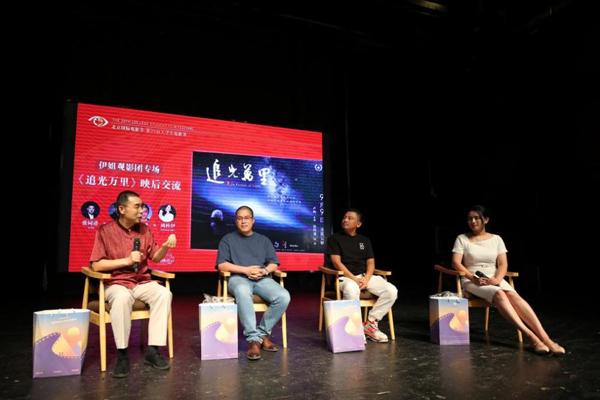
At the academic seminar, well-known scholars and producers from China National Academy of Arts, China Film Art Research Center, Peking University, Beijing Film Academy, Beijing Normal University, China Central Radio and Television Station, and China Educational Television carried out “Chasing Light”. academic discussion. The first half of the forum, with the theme of “image writing in film history”, was chaired by Chen Gang, director and associate professor of the Department of Film and Television Media, School of Art and Media, Beijing Normal University. The second half of the forum, with the theme of “Imaginary Boundaries of Documentary”, was hosted by Fan Qipeng, a professor at the School of Art and Media of Beijing Normal University and the deputy director of the Documentary Center.
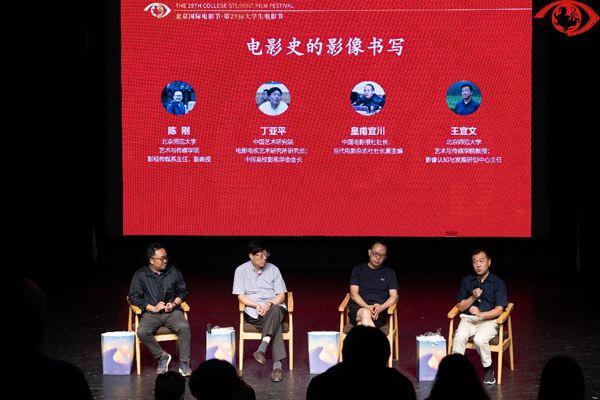
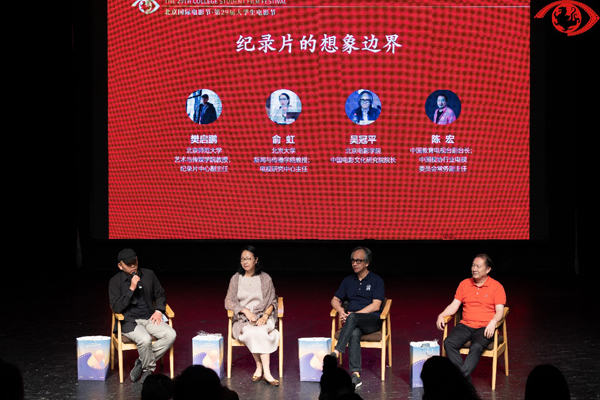

(Chen Gang, Director and Associate Professor of the Department of Film and Television Media, School of Art and Media, Beijing Normal University, presided over the “Image Writing in Film History” forum)
Ding Yaping, director of the Institute of Film and Television Arts of the China Academy of Arts and president of the Chinese University Film and Television Society, proposed that “Chasing the Light” is a rare exploration and innovation in Chinese documentary films, and a tribute to the century-old Chinese film and Chinese filmmakers the “meta-movie”. In his opinion, a filmmaker’s artistic life is limited, but his artistic spirit is infinite. “Chasing the Light” is just inheriting the artistic spirit of Chinese filmmakers and will become a chapter in film history.
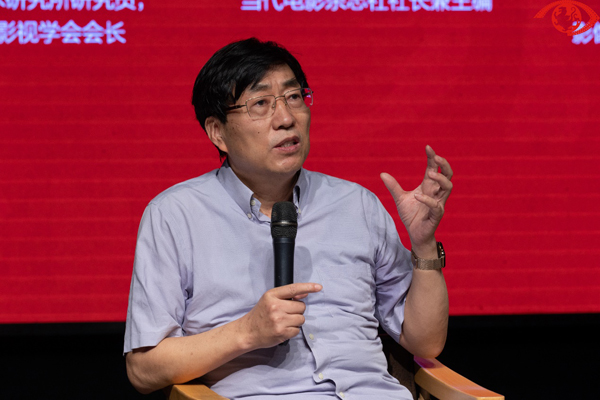
(Ding Yaping, Director of the Institute of Film and Television Arts of the China Academy of Arts, and President of the China University Film and Television Society)
Huangfu Yichuan, president and editor-in-chief of “Contemporary Film” magazine and president of “China Film News”, congratulated Director Zhang Tongdao and his production team. He said that he saw the face of the country and the face of people in “Chasing the Light”. By reproducing the historical scenes experienced by filmmakers such as Lu Yan, the film made the audience immerse themselves in the development of Chinese film history, and brought the light and shadow to the audience. The audience was greatly moved.
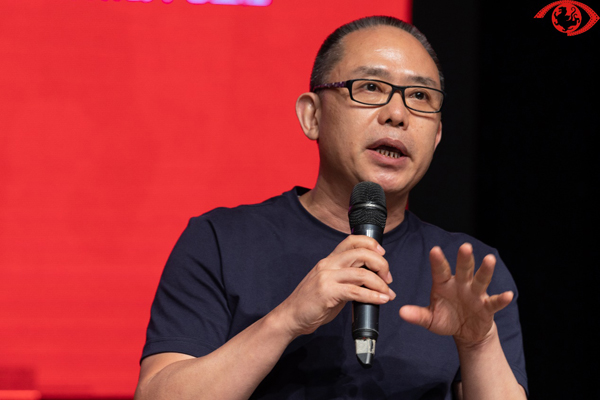
(President and editor-in-chief of “Contemporary Film” magazine, president of “China Film News” Huangfu Yichuan)
Wang Yiwen, a professor at the School of Art and Media of Beijing Normal University and director of the Image Cognition and Development Research and Innovation Center, said that “Chasing Light” is a high-quality documentary film that does not alienate the audience, and can have both authenticity and drama. Professor Wang Yiwen also pointed out that “Chasing the Light” has expanded the study of Chinese film history to the world dimension, which is beneficial to the international exchange of film history research.
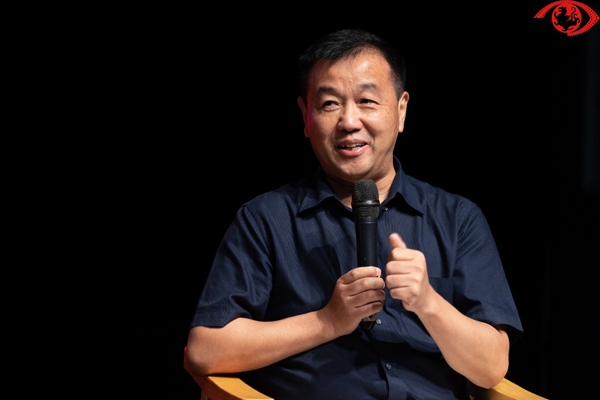
(Wang Yiwen, Professor of the School of Art and Media, Beijing Normal University, Director of the Research and Innovation Center for Image Cognition and Development)
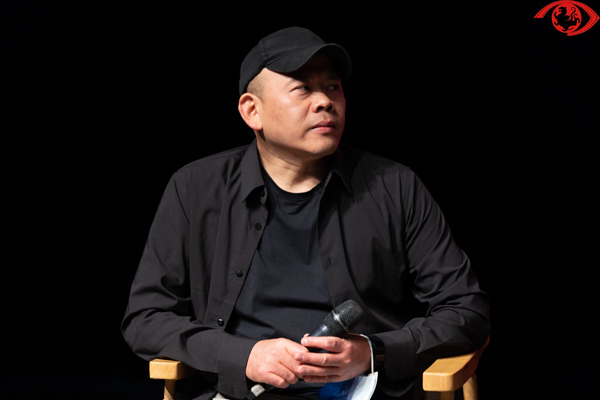
(Fan Qipeng, professor of the School of Art and Media, Beijing Normal University and deputy director of the Documentary Center, presided over the “Imaginary Boundary of Documentary” forum)
Yu Hong, a professor at the School of Journalism and Communication at Peking University and director of the TV Research Center, suggested that in the Internet era full of virtuality, documentary films can satisfy people’s deep-seated pursuit of reality. The biggest highlight of “Chasing the Light” is that it brings the audience a real historical world, and at the same time has great archival value.
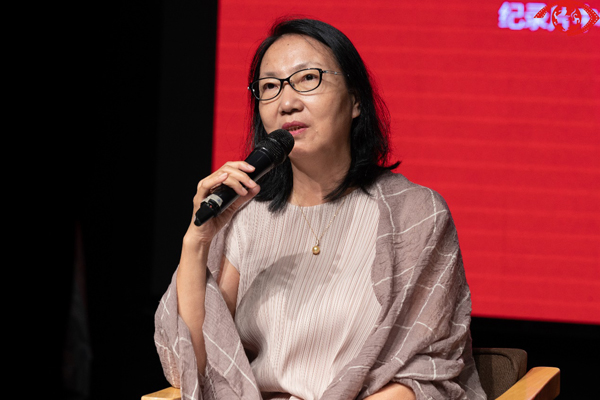
(Professor of School of Journalism and Communication, Peking University, Director of TV Research Center Yu Hong)
Wu Guanping, director of the China Film Culture Research Institute of Beijing Film Academy, believes that “Chasing the Light” has achieved ingenuity in terms of historical attitude, structure and character selection. It not only successfully presented the unknown film history to today’s audience, but also It also leaves today’s history for the future, which has high educational significance and historical value.
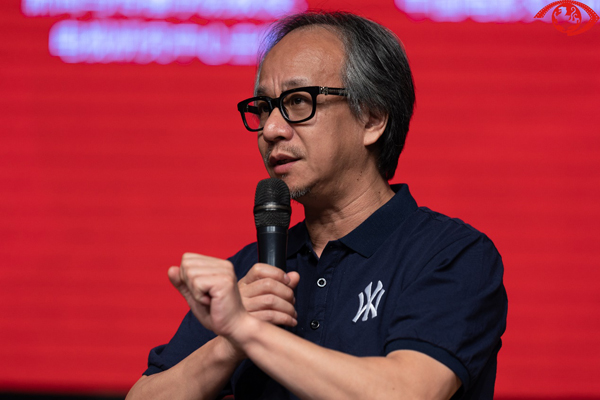
(Wu Guanping, Dean of China Film Culture Research Institute, Beijing Film Academy)
Chen Hong, deputy director of China Education Television and documentary producer, pointed out that the processing and application of narrative clues, audio-visual language, and reproduced scenes in “Chasing the Light” reflects a very high artistic level, creating a new benchmark for current documentary aesthetics.
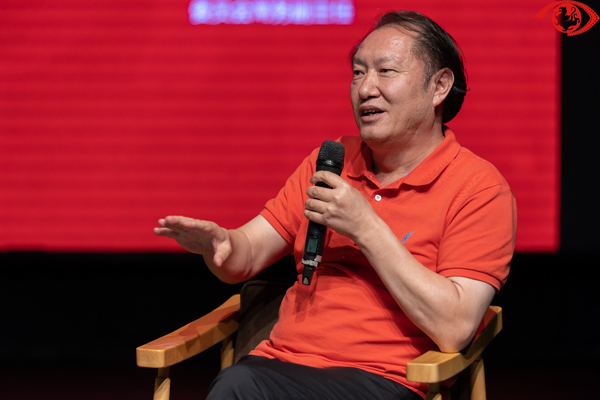
(Chen Hong, Deputy Director of China Education Television and Documentary Producer)
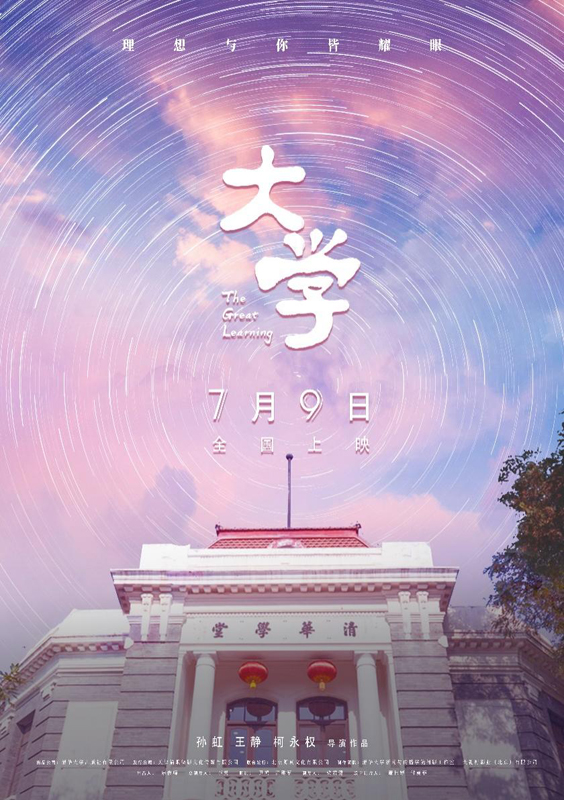
On the evening of the 25th, the movie “University” tells the story of four people who are standing at the intersection of their lives on the campus of Tsinghua University. Among them, there are the first generation of post-00 college students who have just passed the college entrance examination and have been admitted to their favorite universities after twists and turns, doctoral graduates who are about to leave the ivory tower and face difficult choices, and return from the United States to join Tsinghua University, full of “view the sky” “A young teacher with ideals but many challenges, and an old academician who still insists on standing on a three-foot podium after retirement. The film tells the lifelong ideals of the four Tsinghua people and the eternal youth that belongs to the university behind them.
The post-screening communication session was hosted by Liang Junjian, the director, producer, associate professor and doctoral supervisor of the School of Journalism and Communication, Tsinghua University, Wang Jing and Sun Hong, the directors of “The University”, and Cai Zheng, the protagonist of the film and associate professor of the Department of Astronomy, Tsinghua University. Audience questions. The atmosphere was lively.

(Director, Producer, Associate Professor and Doctoral Supervisor Liang Junjian, School of Journalism and Communication, Tsinghua University)
“University” director Sun Hong mentioned that the film will be released in 2021, which is the 110th anniversary of the founding of Tsinghua University. In 2018, when she learned that she could have the opportunity to focus on the stories of young people living in her alma mater, she did not hesitate to enter the filming. During the three years of filming and production, as a director, I often recalled my youth and fearlessness when I first entered the school, and I hope that the audience can also gain some passionate and impulsive youthful power from the film.
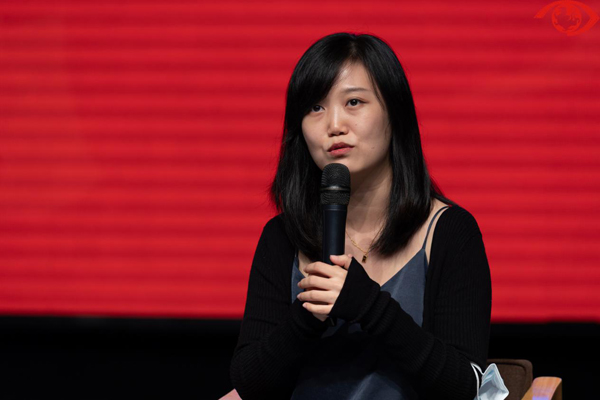
(Director Sun Hong)
Wang Jing, the director of the film, believes that the essence of education is to teach and educate people, and “University” aims to capture the interaction with teachers, students and schools, fully reflecting the school’s influence on “people”. The English name of the film is “The Great Learning”, which is taken from the English translation of “The Great Learning” in the Four Books and Five Classics. The film shoots “Tsinghua” but is not limited to “Tsinghua”, aiming to use Tsinghua University as a window and blueprint to explore the university spirit in a common sense.
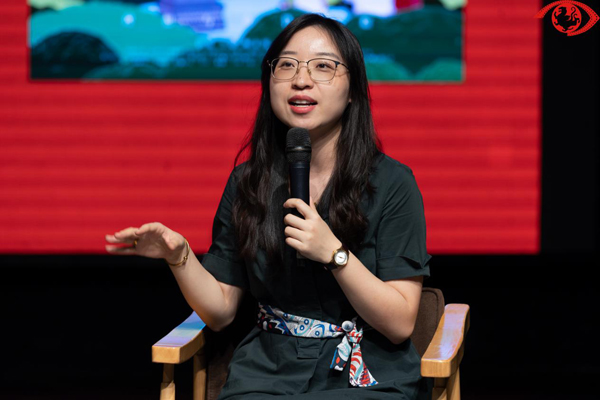
(Director Wang Jing)
In the video, Mr. Cai Zheng’s research on astronomical telescopes aroused the curiosity of the children present. The children enthusiastically asked Mr. Cai Zheng questions about the principle, field of view and other astronomical issues of the telescope. Mr. Cai answered the children patiently and simply.
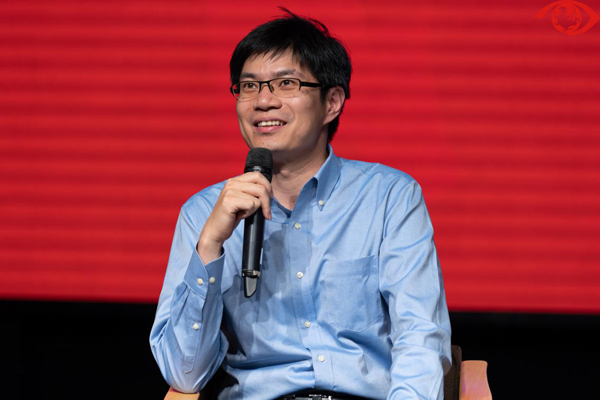
(Cai Zheng, Associate Professor, Department of Astronomy, Tsinghua University)
In response to the audience’s questions about documentary filming skills, Director Sun Hong explained that the filming of “University” was filmed in a way of participatory observation. The film revolved around the core events of the characters and connected their daily lives. From the director’s point of view, the more charm of documentaries lies in the capture of everyday details and the presentation of characters’ personalities. In dealing with the relationship with the subject, “sincere” is the only magic weapon to impress the subject. The shooting of a documentary is not only the shooting of people, but also the comprehensive understanding of the subject.

The audience said that in the film they not only saw the rigor of Tsinghua’s academic studies, but also felt the feelings of Tsinghua’s family and country, and saw the inheritance of Tsinghua’s spirit from generation to generation. Finally, Mr. Cai Zheng brought the guitar playing and singing in the film to the scene, and the post-screening talk came to a successful conclusion in a relaxed atmosphere.
